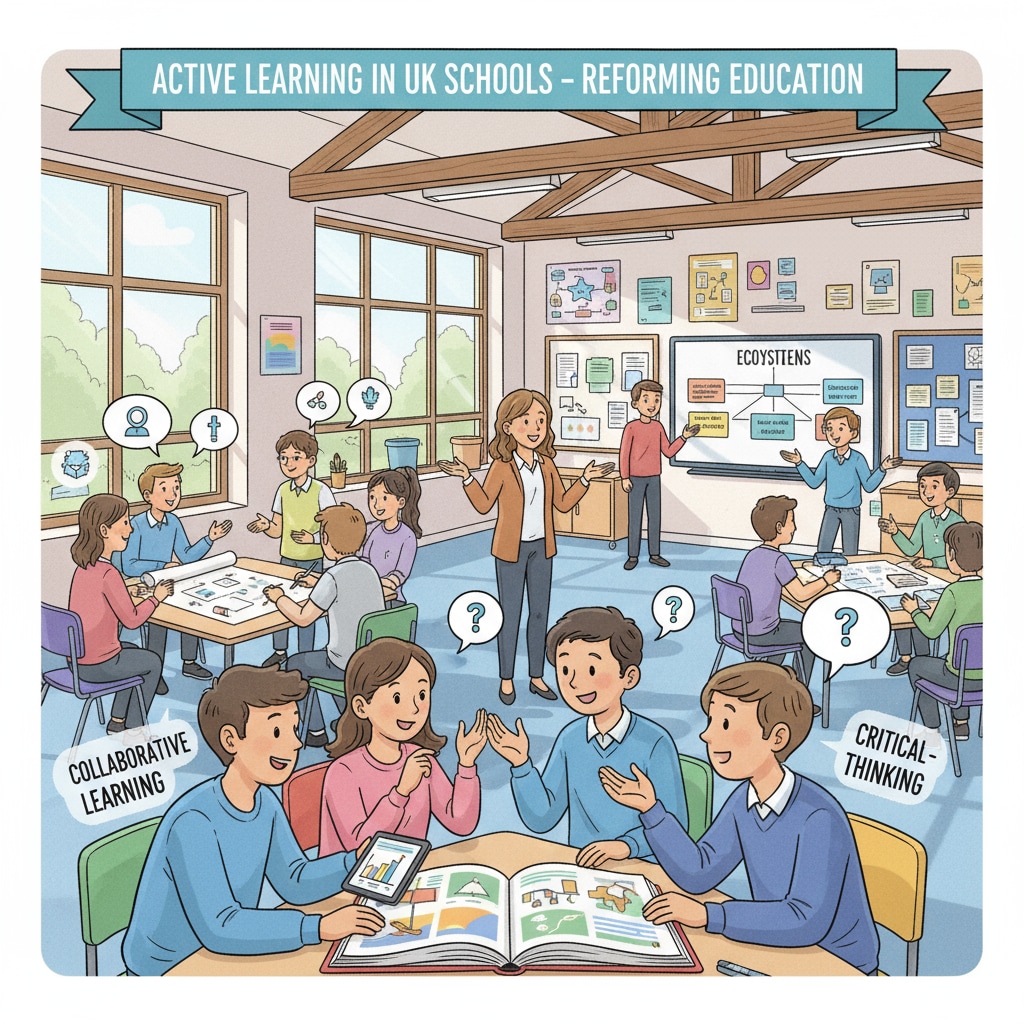The UK education system, curriculum reform, and student assessment methods are at a crucial juncture. The traditional education model in the UK is facing numerous challenges that require immediate attention. In an era dominated by rapid technological advancements, the existing K12 education system needs to adapt to ensure students are well – equipped for the future.

The Challenges of the UK Education System
The curriculum in the UK has become somewhat rigid over time. It often focuses on rote learning and memorization, leaving little room for creativity and exploration. For example, students are required to follow a set syllabus, which may not fully meet the diverse needs of different learners. This lack of flexibility can limit students’ potential to develop unique skills and perspectives.
In addition, the assessment methods are rather single – dimensional. Standardized tests play a dominant role, measuring mainly academic knowledge rather than a student’s overall capabilities, such as problem – solving, critical thinking, and creativity. This narrow focus can lead to students being trained to perform well on tests rather than truly understanding and applying knowledge.
Moreover, art and creative subjects are being marginalized. In the pursuit of high academic scores in core subjects like math and science, schools often allocate fewer resources and less time to art, music, and drama. This is a great loss as these subjects are essential for cultivating students’ creativity and emotional intelligence.
The Need for Curriculum Reform
Curriculum innovation is the key to addressing the issues in the UK education system. A more dynamic curriculum should be developed to incorporate real – world applications and interdisciplinary learning. For instance, integrating science with art can encourage students to think outside the box and approach problems from different angles. This way, students will not only learn theoretical knowledge but also understand how to use it in practical situations.
Introducing project – based learning is another important aspect of curriculum reform. Projects like the Extended Project Qualification (EPQ) can provide students with an opportunity to explore topics they are passionate about independently. Through EPQ, students learn research skills, time management, and how to present their findings effectively, all of which are valuable skills for the future.

Building a Diverse Student Assessment System
To complement curriculum reform, a more diverse student assessment system is essential. In addition to traditional tests, alternative assessment methods such as portfolios, presentations, and group projects should be incorporated. Portfolios can showcase a student’s progress over time, including their work, reflections, and achievements. Presentations allow students to demonstrate their communication skills and knowledge in front of an audience.
Peer assessment and self – assessment can also play a significant role. Peer assessment encourages students to learn from each other and develop critical evaluation skills. Self – assessment helps students take responsibility for their own learning and identify areas for improvement. By using a combination of these methods, a more comprehensive picture of a student’s abilities can be obtained.
In conclusion, the UK education system, curriculum reform, and student assessment methods need a comprehensive overhaul. By innovating the curriculum, promoting project – based learning, and building a diverse assessment system, the UK can reshape its K12 education to cultivate future citizens with creativity and critical thinking. This will not only benefit individual students but also contribute to the long – term development of the country. Education in the United Kingdom on Wikipedia Education in the United Kingdom on Britannica
Readability guidance: The article uses short paragraphs and lists to summarize key points. Each H2 section provides relevant details. The proportion of passive voice and long sentences is controlled, and transition words are added throughout to enhance readability.


